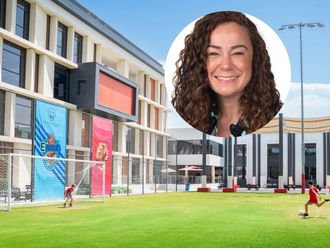Dubai: A free show of the popular Urdu play titled Mian, Biwi Aur Wagah will be staged for 160 blue-collar workers in Dubai on Friday.
Dubai’s South Asian community theatre group, Goonj Productions, is organising the free show in support of UAE’s Year of Giving 2017 initiative.
The play has been written and produced by professionals based in the UAE.
The free show, themed Shukria (Thank You), will be staged at 2.30pm at The Junction, Alserkal Avenue. It will be followed by regular ticketed shows at 7.30pm on October 13-14. The duration of the play is 120 minutes, including the interval.
During the show, workers will be served lunch and refreshments by the play’s food partner — Little Lahore restaurant.
“Whether they are working in our homes as domestic help, or building beautiful buildings across the country, or serving as taxi drivers, waiters, and waitresses, this show is for all these wonderful people. It is an honest appreciation and recognition of their efforts and contribution to society,” said Amna Khaishgi, writer and producer of the play, who will take stage as the Biwi (wife) alongside the play’s co-writer and her husband, Ehtesham Shahid, who plays the role of Mian (husband).
Mian, Biwi aur Wagah is directed by Dhruti Shah D’souza, a Dubai-based theatre artist, storyteller, writer, and playwright.
The play is co-directed by Sheherzad Kaleem who is an award-winning director and producer. The cast includes Majid Muhammad — who plays Wagah — and has also co-written the script. Johan D’Souza’s live renditions add a melodious layer to the act of storytelling on stage. Other performers include Maha Jameel and Faraz Waqar.
The play’s inaugural shows drew full houses on August 11 and 12, thanks to its popularity demand amongst the city’s Urdu and Hindi speaking populace.
Inspired by true events and stories, the play’s idea orginated on a casual evening of drawing-room conversations on the void experienced in communicating with loved ones due to the onslaught of technology, with a conscious need and appeal to revive the intimacy of an almost-forgotten tradition of letter-writing, especially among the new generation.












